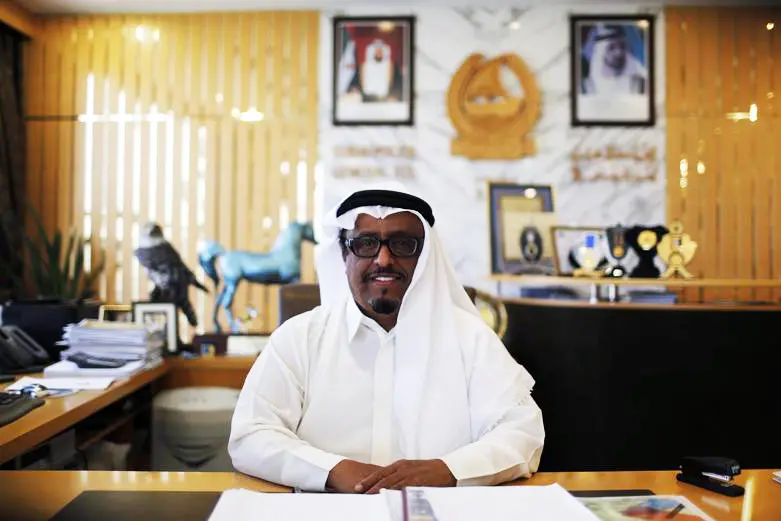PHOTO
01 February 2017
Dubai’s deputy chief of police and public security, Lieutenant General Dhahi Khalfan Tamim, has praised U.S. President Donald Trump’s recent decision to temporarily ban citizens from seven Muslim-majority states, saying in a series of tweets it was a “preventive measure” to safeguard the country.
“Kudos to President Trump for his brave decisions... they (these people) can only be dealt with through preventive measures,” he said in an Arabic-language tweet dated January 29 on his official Twitter account.
“Trump banned the citizens of countries in the embrace of Iran and prevented the Iranians from entering... sound decision,” he added in another tweet.
A day earlier, Trump had issued an executive order temporarily banning entry to the U.S. for people from seven predominantly Muslim countries – Iran, Iraq, Syria, Libya, Somalia, Sudan and Yemen for 90 days. The move led to a strong backlash, with protests in the U.S. and Europe.
Khalfan, a senior Emirati official, is known for his controversial tweets. In 2012, the Egyptian Foreign Ministry summoned the ambassador of the United Arab Emirates (UAE) in reaction to Khalfan’s tweets that attacked Egypt’s Muslim Brotherhood candidate Mohamed Mursi’s win of the presidential vote.
“It is not necessary for America to host backward people, it has received enough before,” he said in one tweet. “What would a Yemini, Iraqi, Iranian, Somali or a Syrian do in America? They have destroyed their countries, they should not destroy America.”
Gulf Arab state and Iran are backing different sides in several regional wars, such as Yemen and Syria, leading to strained relations between the bloc and non-Arab Iran.
(Editing by Shane McGinley and Ghaida Ghantous)
© Zawya 2017
Dubai’s deputy chief of police and public security, Lieutenant General Dhahi Khalfan Tamim, has praised U.S. President Donald Trump’s recent decision to temporarily ban citizens from seven Muslim-majority states, saying in a series of tweets it was a “preventive measure” to safeguard the country.
“Kudos to President Trump for his brave decisions... they (these people) can only be dealt with through preventive measures,” he said in an Arabic-language tweet dated January 29 on his official Twitter account.
“Trump banned the citizens of countries in the embrace of Iran and prevented the Iranians from entering... sound decision,” he added in another tweet.
A day earlier, Trump had issued an executive order temporarily banning entry to the U.S. for people from seven predominantly Muslim countries – Iran, Iraq, Syria, Libya, Somalia, Sudan and Yemen for 90 days. The move led to a strong backlash, with protests in the U.S. and Europe.
Khalfan, a senior Emirati official, is known for his controversial tweets. In 2012, the Egyptian Foreign Ministry summoned the ambassador of the United Arab Emirates (UAE) in reaction to Khalfan’s tweets that attacked Egypt’s Muslim Brotherhood candidate Mohamed Mursi’s win of the presidential vote.
“It is not necessary for America to host backward people, it has received enough before,” he said in one tweet. “What would a Yemini, Iraqi, Iranian, Somali or a Syrian do in America? They have destroyed their countries, they should not destroy America.”
Gulf Arab state and Iran are backing different sides in several regional wars, such as Yemen and Syria, leading to strained relations between the bloc and non-Arab Iran.
(Editing by Shane McGinley and Ghaida Ghantous)
© Zawya 2017





















